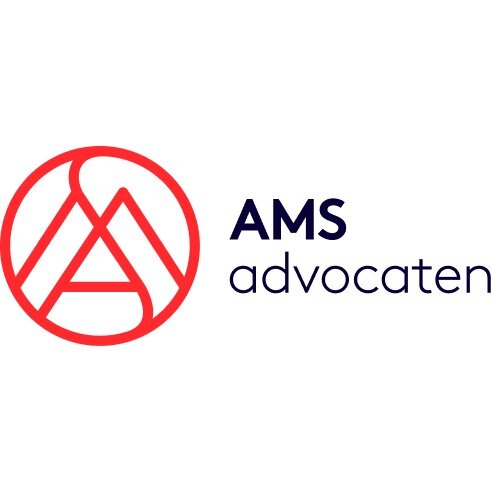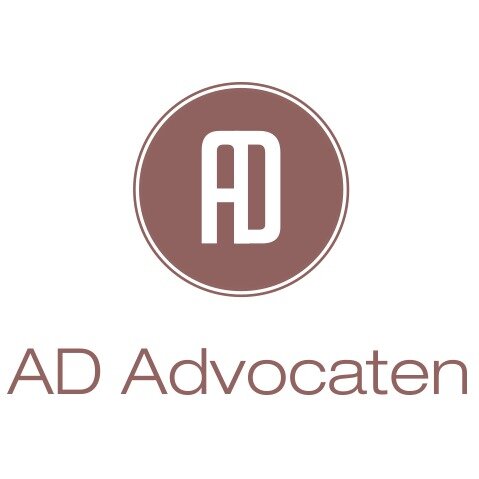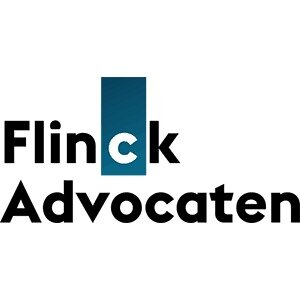Best Water Law Lawyers in Amsterdam
Share your needs with us, get contacted by law firms.
Free. Takes 2 min.
List of the best lawyers in Amsterdam, Netherlands
About Water Law in Amsterdam, Netherlands
Water Law in Amsterdam, Netherlands, governs the management, use, and protection of water resources and infrastructure within the city and its surroundings. As a city built on waterways and below sea level, Amsterdam relies on strict regulation to ensure safety from flooding, maintain water quality, and balance various social, commercial, and ecological interests. Water Law covers issues such as the rights and duties of water users, water board governance, permits for water-related developments, pollution prevention, and dispute resolution regarding water access or use. The Netherlands' complex water management system is internationally renowned, and Amsterdam is a key location due to its historical canals, rivers, and proximity to the IJsselmeer and the North Sea.
Why You May Need a Lawyer
There are many situations where you may require legal help with Water Law in Amsterdam. Common scenarios include:
- Applying for permits to build, renovate, or modify properties near waterways
- Disputes between property owners concerning water access, boundaries, and drainage
- Compliance issues relating to pollution, wastewater, or stormwater management
- Challenges with water use rights for agricultural, industrial, or commercial purposes
- Enforcement actions or penalties from water boards (waterschappen) or municipalities
- Impacts from public works or infrastructure projects, like dike improvements or canal dredging
- Flood damage and liability questions after extreme weather events
- Concerns about water levels effecting shipping, recreation, or environmental balance
- Difficulties understanding or engaging in water board elections and governance
Lawyers can help clarify your rights, represent your interests in disputes or negotiations, advise on regulations, and support permit applications and appeals processes.
Local Laws Overview
Amsterdam's Water Law system is influenced by Dutch national legislation, European Union directives, and unique local regulations developed for its extensive urban waterways. Key elements include:
- Water Boards (Waterschappen): Regional governmental bodies responsible for water management, dike maintenance, and water quality. Residents and landowners pay water taxes and may vote in board elections.
- Water Act (Waterwet): National framework law integrates surface water, groundwater, flood protection, and water quality rules.
- Permit Requirements: Many activities near or on water (construction, discharge, extraction) require permits from relevant authorities, often assessed for environmental impact.
- Protection from Flooding: Strict building requirements and zoning regulations apply, particularly within polder (reclaimed land) areas and flood-prone zones.
- Discharge and Pollution Control: Laws restrict the introduction of pollutants into water systems, with heavy penalties for violations.
- Navigation and Usage Rights: Rules govern the use of canals, bridges, moorings, and shipping channels for both commercial and recreational purposes.
- Public Participation: Opportunities exist for residents and stakeholders to provide input into water policy and planning decisions.
Understanding which body or level of government is responsible and what procedures to follow can be complex, especially in urban environments like Amsterdam.
Frequently Asked Questions
What is a water permit, and do I need one in Amsterdam?
A water permit is official approval required for certain activities affecting waterways or water systems, such as construction, discharges, dredging, or groundwater extraction. In Amsterdam, these permits are typically issued by the water board or municipality. You will likely need one if your project is near a canal, dike, or floodplain.
Who manages the canals and waterways in Amsterdam?
Canals and waterways are managed by a combination of the municipality of Amsterdam and the local water board (Waterschap Amstel, Gooi en Vecht). They are responsible for maintenance, water quality, and enforcing regulations.
Can I build a dock or terrace along a canal?
Building any structure adjacent to or over a canal generally requires multiple permits from both the municipality and the water board. Requirements include technical assessments, environmental impact studies, and public safety checks.
How do I address flooding issues affecting my property?
First, contact your local water board and municipality to report recurring problems. They can inspect the situation and may advise improvements or remedial actions. Significant flooding and damage may involve compensation or legal responsibility issues, where a lawyer can assist.
Who is responsible for maintaining dikes and other water defenses?
Water boards are primarily responsible for dike maintenance and upgrades, funded by local water taxes. Property owners may also have responsibilities for sections adjacent to their land, depending on local rules.
What can I do if a neighbor’s actions negatively affect my water access or property?
Legal options include mediation, filing a complaint with the water board, or initiating court proceedings. A water law specialist can advise on the best approach and possible remedies.
What happens if I violate water pollution laws?
Fines, orders to remediate contamination, or even criminal prosecution may result from breaching water pollution laws. Prompt legal advice is crucial if you face enforcement actions.
Are there rules for using boats on Amsterdam’s canals?
Yes. Boating on the canals is heavily regulated for safety, traffic management, and environmental reasons. Requirements cover registration, emissions, speed limits, and mooring permissions.
How are water boards structured, and how can I participate?
Water boards have elected representatives, often with seats for farmers, residents, and business interests. Eligible individuals can vote and sometimes run for board positions in regular elections.
Where can I find the relevant regulations and local procedures?
Key documents are available from the municipality of Amsterdam and the relevant water board. Lawyers and legal advisers can help interpret official texts and explain requirements as they pertain to your situation.
Additional Resources
If you need more information or assistance regarding Water Law in Amsterdam, you can turn to the following resources:
- Municipality of Amsterdam - for local ordinances and permit procedures
- Waterschap Amstel, Gooi en Vecht - the regional water board responsible for Amsterdam
- Rijkswaterstaat - the national water authority managing major waterways and infrastructure
- Het Juridisch Loket - provides free or low-cost legal advice on various topics, including water issues
- Legal aid bureaus and private law firms specializing in property, environmental, and Water Law
- Netherlands Environmental Assessment Agency (PBL) - information on environmental regulations
- Regional mediation services for resolving disputes involving neighbors or government bodies
Next Steps
If you believe you need legal assistance in Water Law, start by gathering information about your issue, such as correspondence, permit applications, or official notices. Contact the relevant local authority (municipality or water board) to clarify the procedures that apply to your case. Consider seeking advice from a lawyer specializing in Water Law or environmental and property law in Amsterdam. They can help you understand your legal position, guide you through the application or enforcement process, and represent your interests in negotiations, mediation, or legal proceedings. Acting quickly is especially important when facing deadlines or enforcement actions.
Remember, Water Law in Amsterdam involves a mixture of technical and legal complexity, so expert guidance can make a significant difference in protecting your interests and resolving disputes effectively.
Lawzana helps you find the best lawyers and law firms in Amsterdam through a curated and pre-screened list of qualified legal professionals. Our platform offers rankings and detailed profiles of attorneys and law firms, allowing you to compare based on practice areas, including Water Law, experience, and client feedback.
Each profile includes a description of the firm's areas of practice, client reviews, team members and partners, year of establishment, spoken languages, office locations, contact information, social media presence, and any published articles or resources. Most firms on our platform speak English and are experienced in both local and international legal matters.
Get a quote from top-rated law firms in Amsterdam, Netherlands — quickly, securely, and without unnecessary hassle.
Disclaimer:
The information provided on this page is for general informational purposes only and does not constitute legal advice. While we strive to ensure the accuracy and relevance of the content, legal information may change over time, and interpretations of the law can vary. You should always consult with a qualified legal professional for advice specific to your situation.
We disclaim all liability for actions taken or not taken based on the content of this page. If you believe any information is incorrect or outdated, please contact us, and we will review and update it where appropriate.












